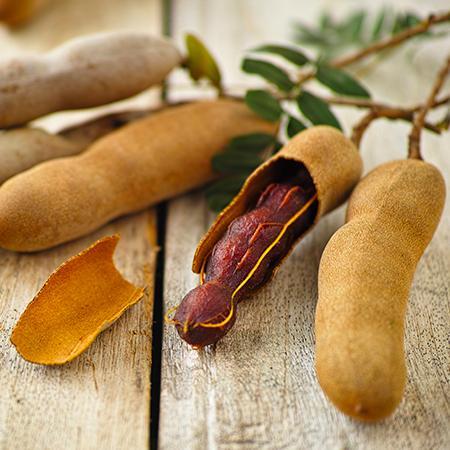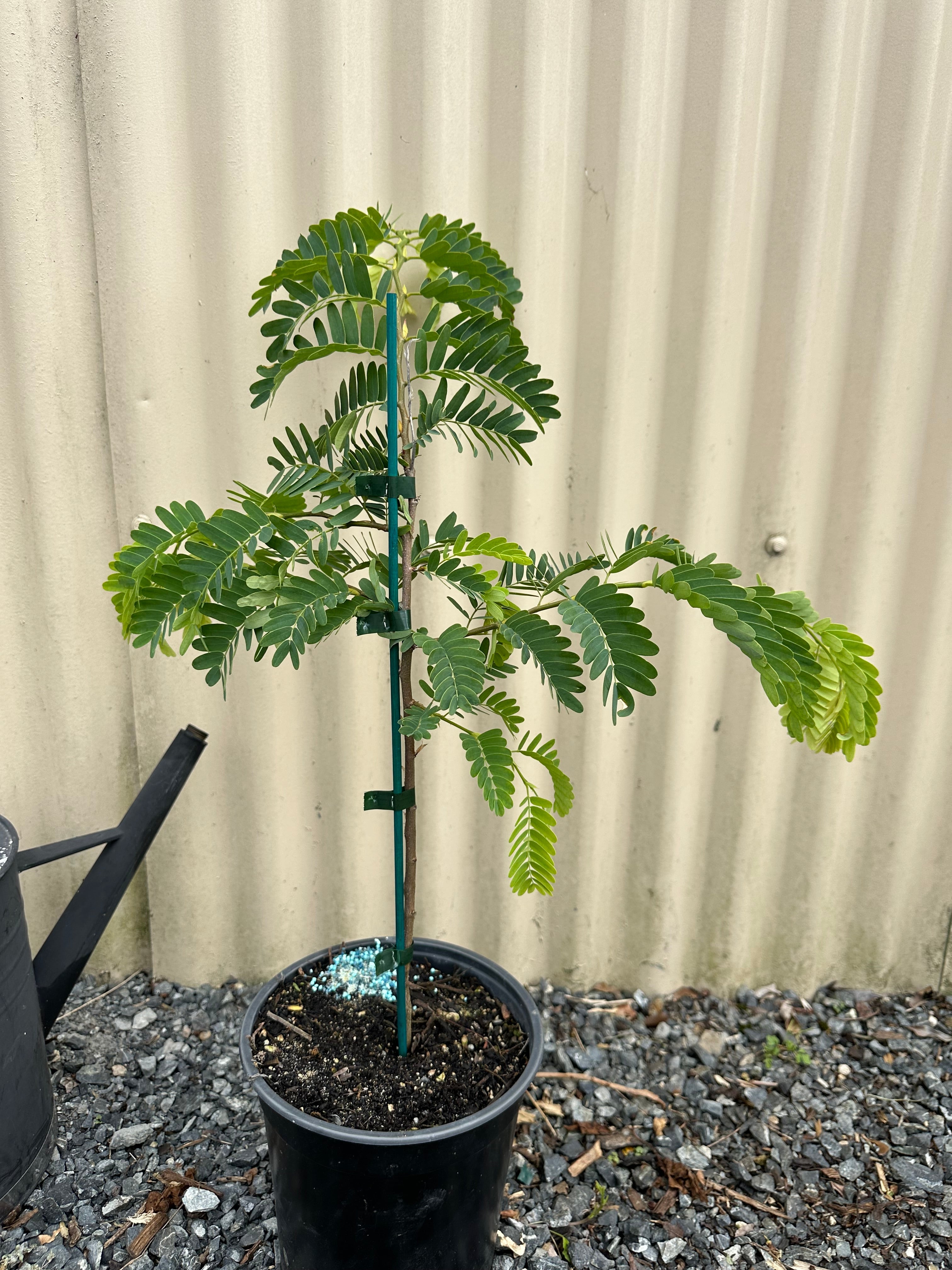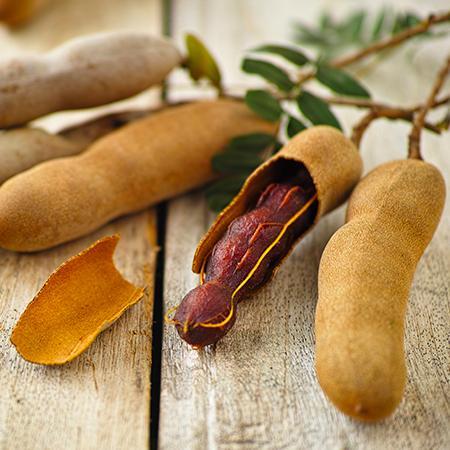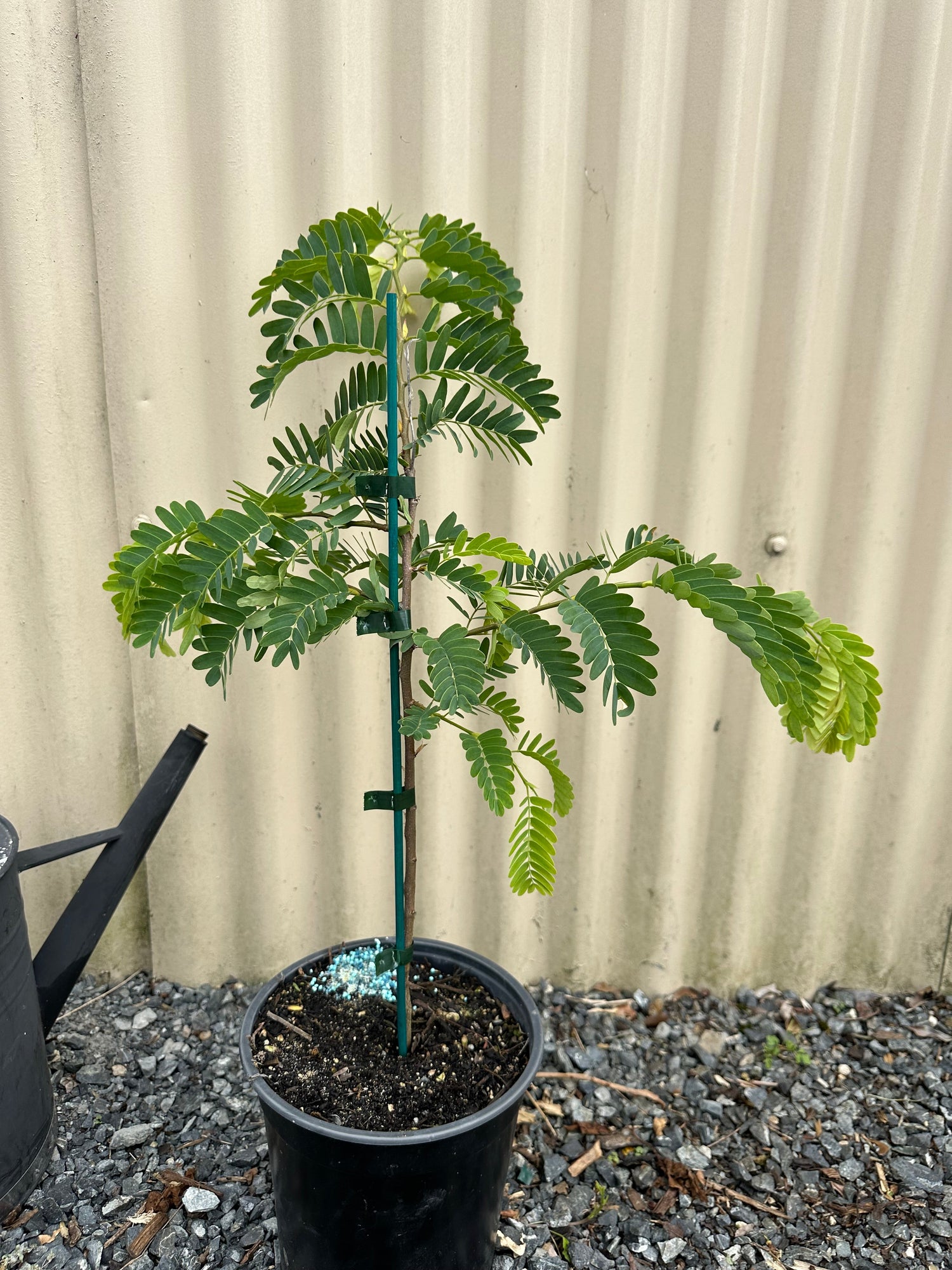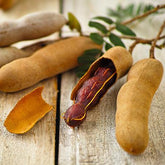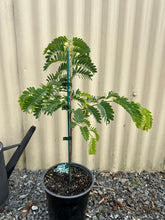Sweet Tamarind ( Tamarindus indica )
- Regular price
-
$69.00 - Regular price
-
- Sale price
-
$69.00
Couldn't load pickup availability
Tamarindus indica, also known as Tamarind, is a tropical tree species in the family Fabaceae. The tree is indigenous to tropical Africa, and is widely cultivated in tropical regions around the world. The tamarind fruit is used in a variety of cuisines, and is valued for its tangy, slightly sweet flavor. Tamarind is also used in traditional medicine for its various medicinal properties.
The Tamarind Tree is a popular choice for landscaping due to its unique vase-shaped canopy filled with pairs of leaves that give it an exotic appearance. In the winter, pale green flowers bloom, adding a splash of color to the landscape, followed by tan seedpods.
These tan pods contain an edible fruit pulp that is juicy, sweet, and tangy. The pods have thin shells, which makes it easy to crack them open for a refreshing snack during the summer.
Tamarinds are commonly eaten fresh, but they are also utilised in various culinary dishes worldwide. They are used to enhance jams and sauces like BBQ sauce. The sweet and tangy flavor complements meats, stir-fries, and curry. Tamarinds are also used to flavor homemade beverages and desserts such as ice cream.
Not only is Tamarind delicious, but it is also very healthy. It is packed with vitamins and minerals, such as Vitamin A, Vitamin C, B vitamins, potassium, iron, zinc, fiber and more, which can help boost your immune system and regulate your digestion.
Tamarind Trees are low maintenance and easy to care for, whether planted in the ground or in a container. They are drought-tolerant and can thrive in areas with high humidity. Additionally, Tamarinds are strong trees that can withstand coastal conditions, thanks to their high level of wind resistance and salt tolerance.
Planting : To plant your Tamarind Tree, select an area that gets full to partial sun (4-8 hours of sunlight per day) and has well-drained soil. If you live in a colder climate, consider planting your Tamarind in a container so you can bring it indoors during the winter.
Watering: Water your Tamarind Tree once a week during the growing season, reducing the frequency in autumn and winter. Only water when the soil is dry, about 2-3 inches down.
Fertilising: Apply a slow-release 8-3-9 fertiliser during early spring for the first three to five growing seasons.
Pruning: Prune your Tamarind Tree in late winter with pruning shears. During the first two years, select 3-5 strong and evenly spaced branches for scaffolding, cutting them at a 45-degree angle. Cut all other branches back nearly to the trunk. Afterwards, remove dead or weak branches annually.
